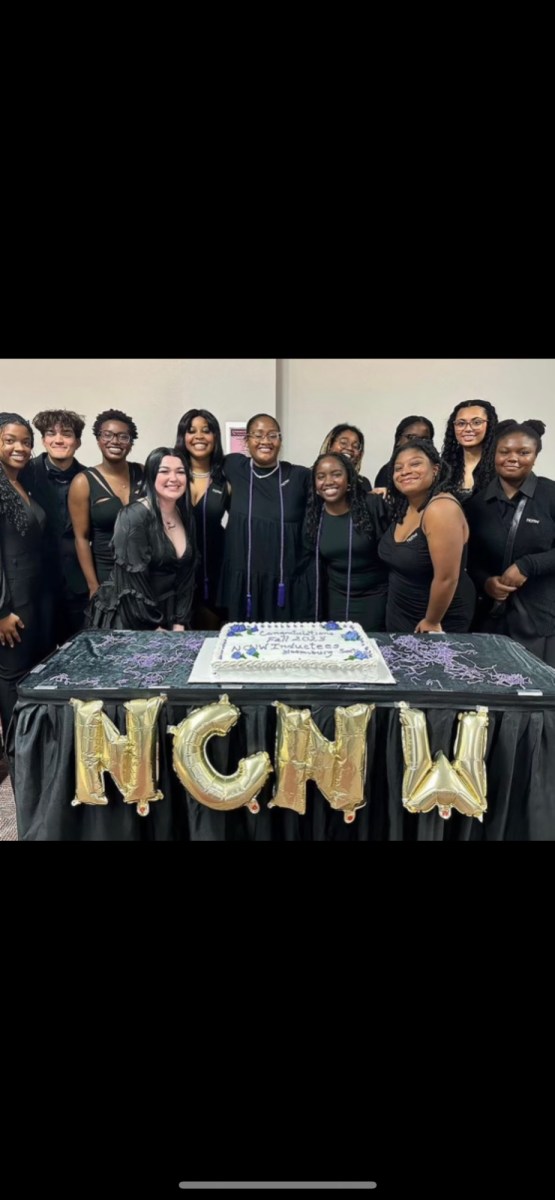The letter of the law: Why we shouldn’t use literature to fuel political agendas
March 22, 2019
I hate it when people misread older books and documents to mean whatever they want it to mean. Timeless pieces of art are reduced to whatever interests the reader at the expense of what the author is actually saying. Charles Dickens wrote volumes of fiction and recounted some of them from memory for audiences.
Many of us would be hard pressed to write a novel or two or memorize a few pages of content. Why do we think we are better than the great authors we read? Many of them wrote genius works, and our common approach is to get what we want out of it, if there is anything we want at all.
Authors are the teachers with valuable lessons to be learned. We are not to stand in judgement, looking down our noses at these artistic giants, for we are but grasshoppers to them. Or to pull it apart, and judge it by what is “hip” and “woke” today, for these great texts should be enjoyed as they are, apart from contemporary thought and opinion.
A good concrete example is Crash Course Literature’s video on Homer’s epic poem, “The Odyssey”. It was very informative and helpful, but one thing struck me that has frustrated me.
The host, young adult fiction writer, John Green read “The Odyssey” and concluded it was misogynistic. Green describes the monsters and villains of the poem as all being women and all the heroes being men. This is not true, and this is easily deflated by the fact that both the Olympian god Poseidon and his son the Cyclops are a male, as well as the villainous suitors. Athena and Penelope are also heroic characters, and the whole poem is about Odysseus getting back to his beloved wife.
This conclusion is quite reductionist and thin, as no gender is portrayed better than the other. It portrays both the heroic values and moral failings of both male and female characters. If anything, the work is forward thinking for the time. The poem and the past isn’t as simple as Green believes.
Despite the Greco-Roman world’s moral failings, it has generated timeless works of art which have been the standard for generations. To simply classify the work of Homer, Virgil, Aristotle or any figure of antiquity as simply “misogynistic” is to subject another culture to our standards.
It’s a “Chronological snobbery” as C. S. Lewis called it, meaning we think ourselves better than people of previous times. While we possess more technical knowledge, we do not possess the same the mental capacity or abilities. More importantly, this sort of misreading is missing the invaluable understanding of the texts.
Another good example is Shakespeare. Shakespeare is one of the easiest texts to mishandle. Although being in English, the language is almost completely foreign to our own. The plays also require a good understanding of the contexts in which they were written to understand what they were saying.
Recently, it seems popular to appropriate Shakespeare for political purposes, as the recent production “Julius Caesar” with Trump in 2017 shows. As Terry Teachout from the Wall Street Journal noted of the production, “Politics makes artists stupid”. Shakespeare’s plays do contain political themes, but that is the key term: themes.
To lift quotes or examples from his plays without proper understanding is to do violence to the text and ultimately rob the reader or viewer of appreciation of the text.
Great works of literature and art are meant to be enduring and appreciated, while politics, especially modern, is cheap and vacuous of life. To read Shakespeare in modern political terms is to read him backwards and denigrate the art. To read or watch it performed and appreciate it first on a personal level, then apply the themes and principles to today is fine, but the reverse dishonest.
Returning to the recent example of the Trump “Julius Caesar”, the whole struggle of the play is between loyalty to the Republic and a close friend. The historical context of the events and the story are that of a society turning from civilized government to chaos under empirical rule. The dramatic tension of the story is that in attempting to save the Republic, even by murdering their friend, Brutus and Cassius facilitate its dissolution. Not only is the United States not in a similar predicament but casting a Trump-like Caesar makes no sense in the story.
If the Caesar-Trump is killed, does that imply that this would lead to the downfall of the United States? Political preferences aside, this example proves how narrow opinions limit and twist the purposes of the art. Finally, perhaps the most recent and most popular example is our Constitution and other Founding documents. The Founders drew on the rich tradition I’ve already mentioned and were very intelligent. They were complex people and created a complex document.
Now the Constitution should be read seriously like any other document. There should be little debate that entertains drastic departures from what it obviously says. Especially with a document with so much supporting documentation in The Federalists and Anti-Federalists Papers, not to mention various letters, speeches and similar supporting texts.
To give a concrete example, the clause in the First Amendment regarding freedom of religion is interpreted today in some ways as to mean that religion should play little to no role in public and civic life. This clause has a fair bulk of history behind it that is needed to understand it.
Throughout the Middle Ages into the Renaissance and Reformation, the Catholic Church controlled many political affairs, even owning land and armies. The various states of Europe also had favor or hold over some church affairs and institutions, making both parties corrupt and ineffective, limiting both of their proper roles. This clause was meant to properly protect religious freedom and keep both institutions from warping their purposes. Additionally, if there was any doubt, the Constitution was largely influenced, indirectly and directly, by the Bible.
There is a big difference between this interpretation and what text means. This sort of reading is sloppy and inexcusable. This clause was specifically borne out of distrust among the various sects of Protestant Christianity in the new nation and previous persecution in Europe. The First Amendment, regarding the freedom of religion clause was written to protect individuals’ faith from any fellow citizens or government harassment or encroachment.
There is no excuse for reading an older text superficially and without serious consideration. Many of the works mentioned are literature, and as Kenneth Burke put it “Literature is equipment for living”.
But this equipment requires a user to be familiar with it, not to be used as a blunt weapon for whatever purposes the user wants. Learning to appreciate this equipment requires understanding and overcoming chrono ethnocentrism. This requires patience and time but is well worth the reward.
Gabriel is a junior Communication Studies major and a Staff Writer for The Voice.






























